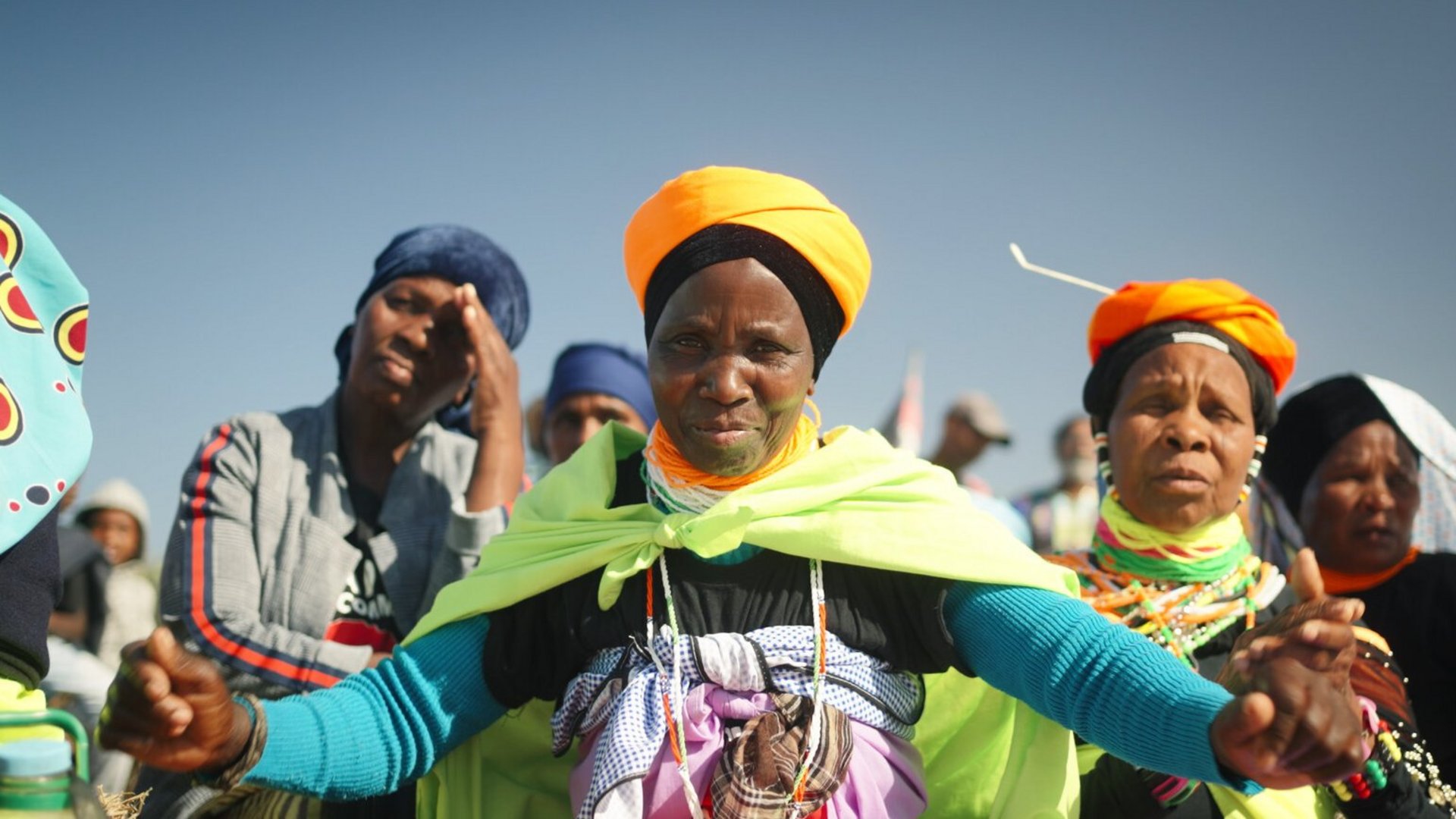
© Filmstill Wild Coast Warriors

© Filmstill Wild Coast Warriors
Welcome to Dokumentale, where films become a gateway to discovery, discussion, and deeper understanding. Bring your class to the cinemas and pay only 4€ per student - free entry for teachers!
Designed for students from 7th grade onward, our selection of international documentaries seamlessly integrates into your curriculum. Students explore complex subjects through real stories, gaining insights into past and present challenges. Post-screening discussions encourage them to analyze, reflect, and debate the themes raised in each film, making learning interactive and thought-provoking.
This year’s selection includes films that shed light on history, identity, activism, and science in surprising ways. We have just released the first documentary highlights of this year’s programme - but there are many more documentaries for you and your class to watch, we will share more of our programme shortly!
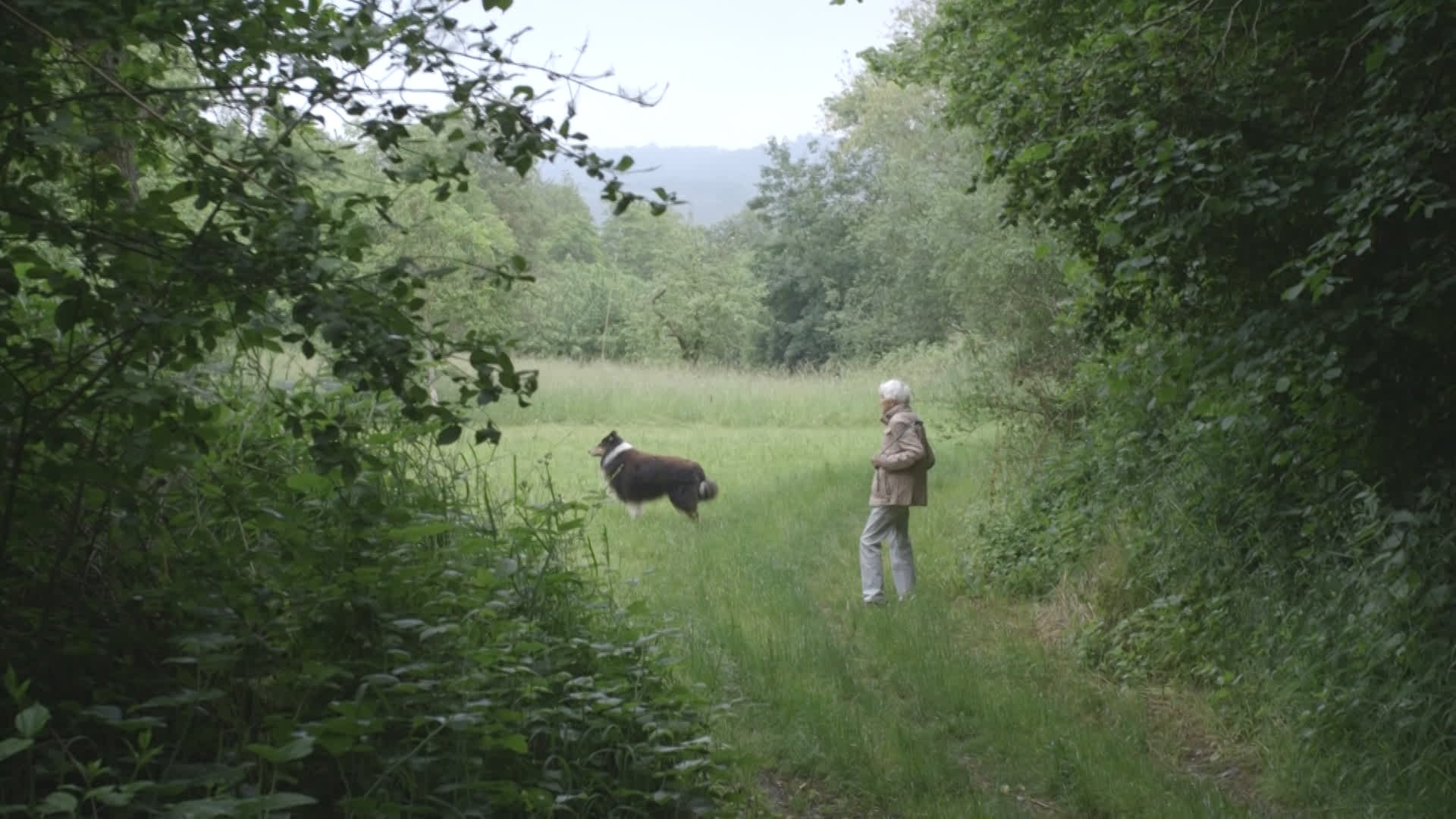
Recommended for: Grade 8 and above (FSK 12)
Subjects: History, Politics, German, Ethics, Religion
Curriculum relevance: National Socialism, Culture of Remembrance, Identity Formation
German/English with English or German Subtitles
Application in the classroom:
This film is excellent for introducing or deepening discussions on National Socialism and the Holocaust—whether as a stimulus before a memorial site visit or within a lesson series on remembrance culture. The personal family story provides an emotional approach, making it suitable for reflective discussions, writing assignments (e.g., diary entries or fictional letters), and engagement with moral questions. It can also be used in cross-disciplinary lessons with German or Religion.
Three generations of women grapple with their family's legacy of the Holocaust, its affiliation with the Nazi regime, and their resistance. "It Happened on Our Ground" is a sensitive exploration of guilt, memory, and the strength needed to heal.
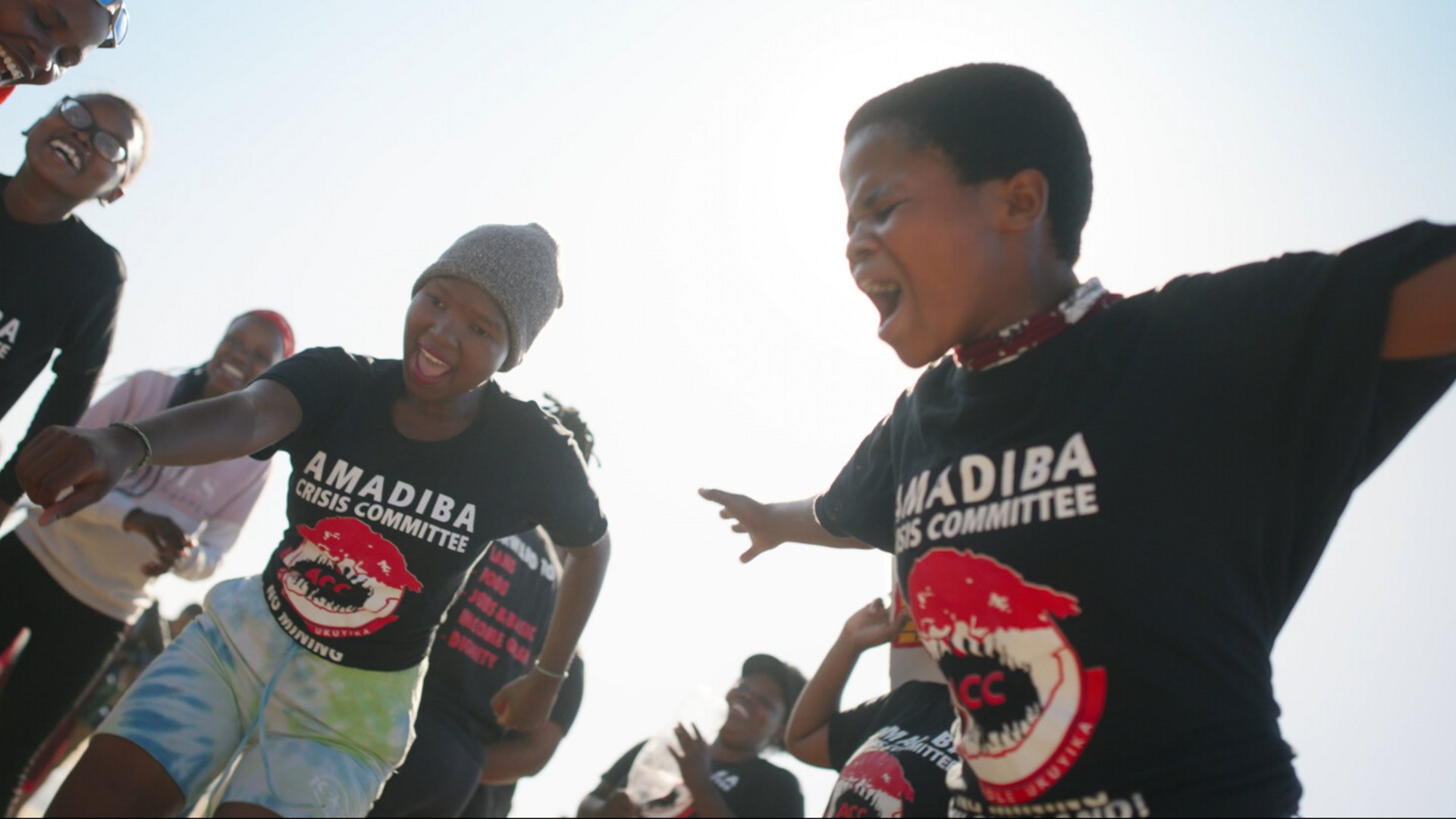
Recommended for: Grade 7 and above (FSK 12)
Subjects: Geography, Politics/Economics, Biology, Ethics
Curriculum relevance: Sustainability, Globalization, Environmental Responsibility
Original with English or German Subtitles
Application in the classroom:
The film provides an authentic basis for discussing environmental conflicts, corporate responsibility, and Indigenous rights. Teachers can incorporate it into units on sustainability or globalization. Suggested methods include group work analyzing different stakeholders (oil company, local population, government) or a debate on the question: “Who owns nature?” It is also suitable as an introduction to project weeks on environmental topics.
Profit-driven destruction is threatening South Africa’s West Coast, with devastating effects on livelihoods and the environment. Yet, the AmaMpondo, an indigenous community from South Africa, stands resolutely against oil giant Shell to preserve their lands and their future. Their resistance is more than a protest—it is a fight for the survival of their culture. For them, the sea is not just a resource but a spiritual bond to their ancestors, deeply woven into their identity. This film is a powerful tribute to a community that stands firm, defending their homeland, identity, and culture.
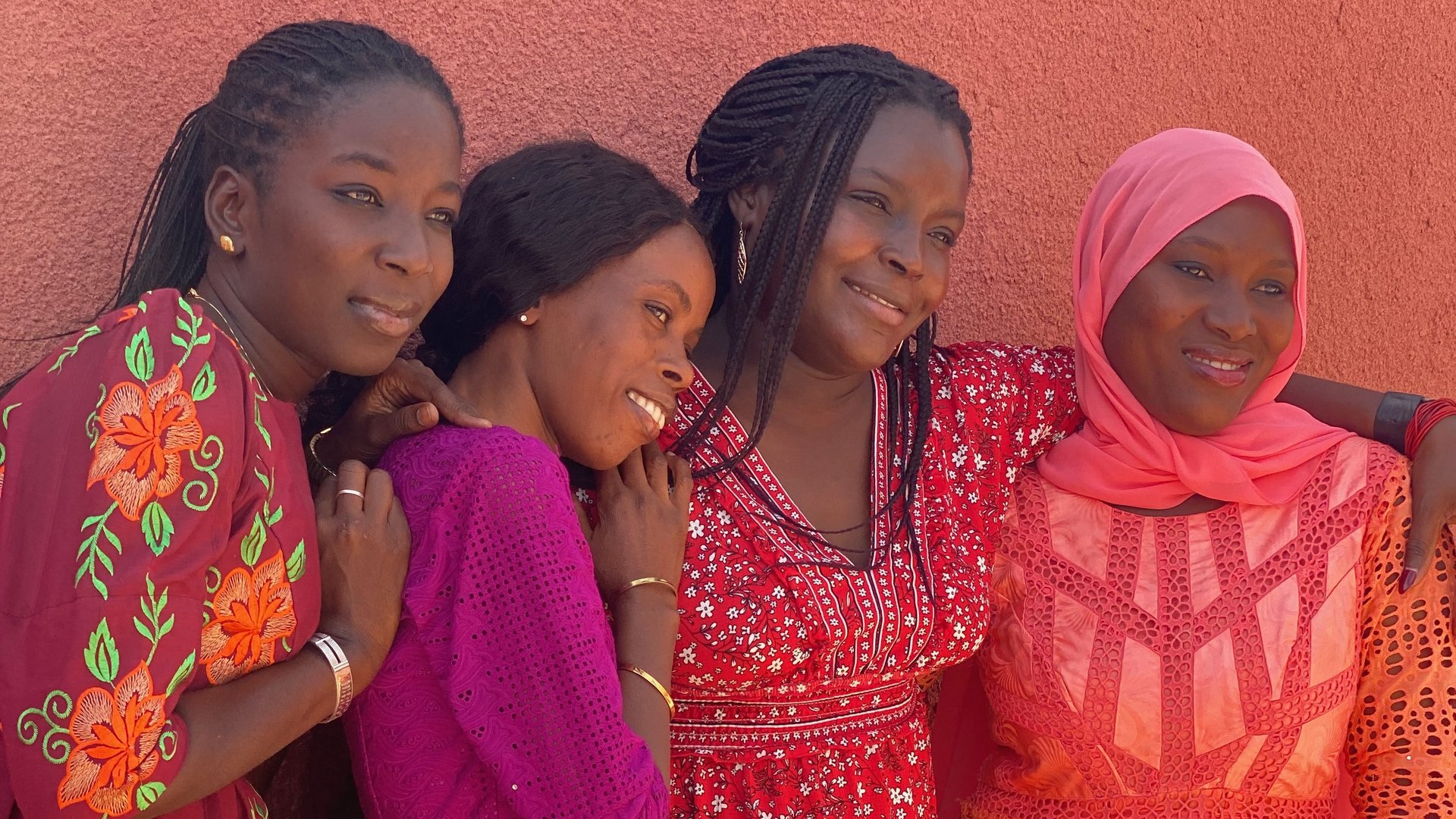
Recommended for: Grade 7 and above (FSK 12)
Subjects: Geography, Social Studies, Economics, Ethics
Curriculum relevance: Poverty, Gender Equality, Entrepreneurial Thinking
Original with English or German Subtitles
Classroom Use:
The film presents real-life stories from Peru, Sri Lanka, and Senegal, making it suitable for exploring global inequalities and empowerment. Teachers can use it to introduce topics like the United Nations’ Sustainable Development Goals (SDGs). Ideal for group work: each group analyzes one protagonist and examines how she overcomes challenges. Additional activities could include students developing their own mini-business ideas or creating a ‘Gallery of Heroines.’
Three women take matters into their own hands when they establish their own businesses in Peru, Sri Lanka, and Senegal, shaping their futures with bravery. Gladys Yupanqui from Peru runs a minimart, Magatte Wade from Senegal starts a cosmetics factory, and Selyna Peiris from Sri Lanka takes over her mother’s textile business. Laws in nearly a third of the world’s countries prevent women from equal access to work—with devastating effects on poverty rates. This documentary captures how local entrepreneurship creates livelihoods and brings about lasting change.
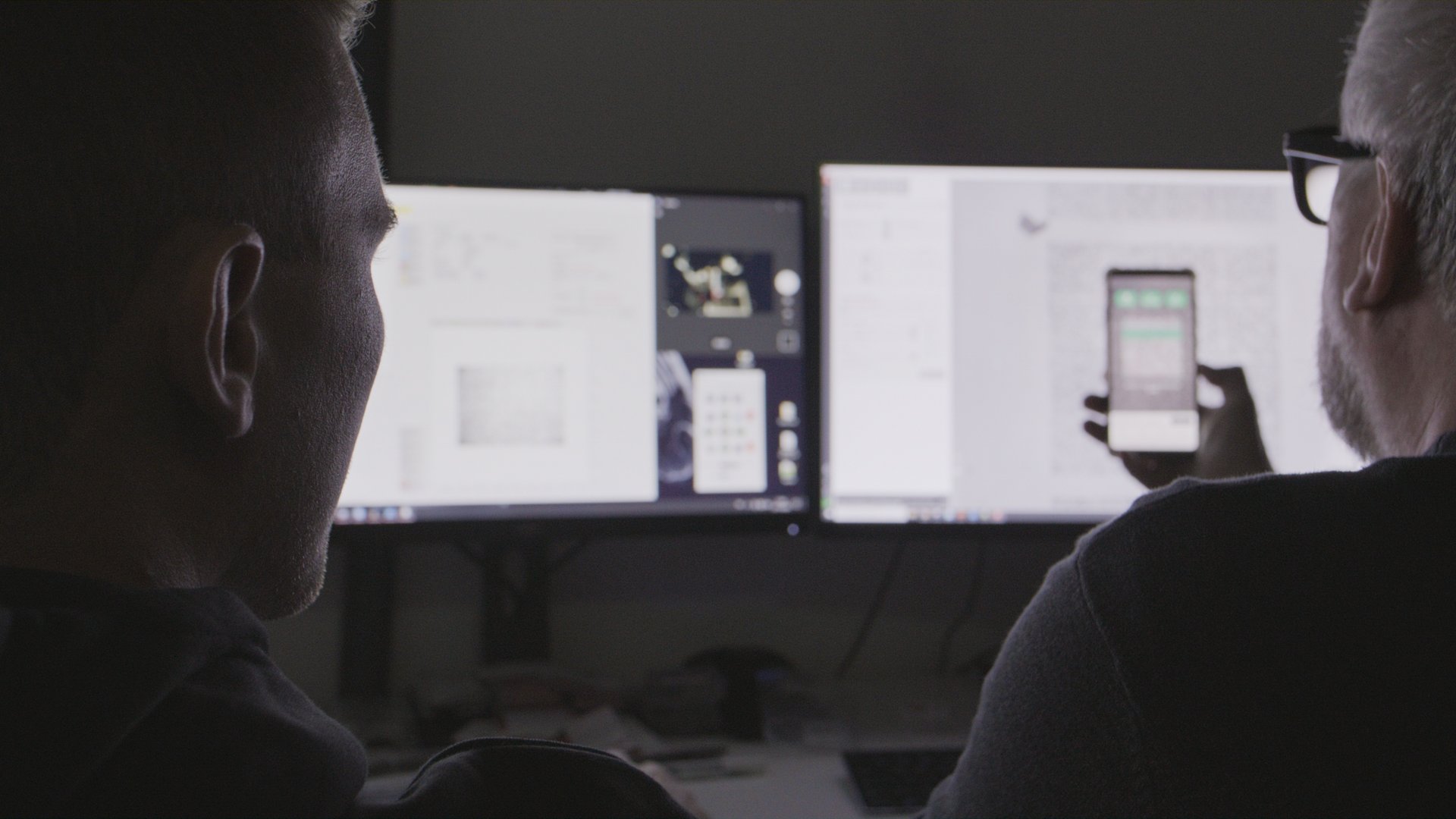
Recommended for: Grade 9 and above
Subjects: Politics/Economics, Ethics, Social Sciences, Media Studies
Curriculum links: Democracy education, media literacy, opinion formation, dealing with fake news
German/English with German or English Subtitles
Application in the classroom:
The film is an excellent resource for exploring the mechanisms of disinformation and propaganda in the digital age. It provides a vivid foundation for discussing media literacy, critical thinking, and the importance of independent information in democratic societies. Teachers can integrate the film into lessons on political opinion-building, conspiracy theories, or the ethics of the digital world. Methodologically, students can analyze the deceptive strategies shown in the film or engage in a debate on the question, 'How can we recognize the truth in a world full of misinformation?' The film is also well-suited as an introduction to project weeks on democracy or media education.
How can we know what’s true? In an age where fake news increasingly shapes our perception of the world, a team of experts from tech, journalism, and neuroscience reveals how disinformation, conspiracies, and propaganda distort reality. Their personal journeys take us deep into the darker corners of the human mind, where lies and conspiracy theories become dangerous weapons. A gripping film about the power of truth – and those who fight for it in a world full of deception.